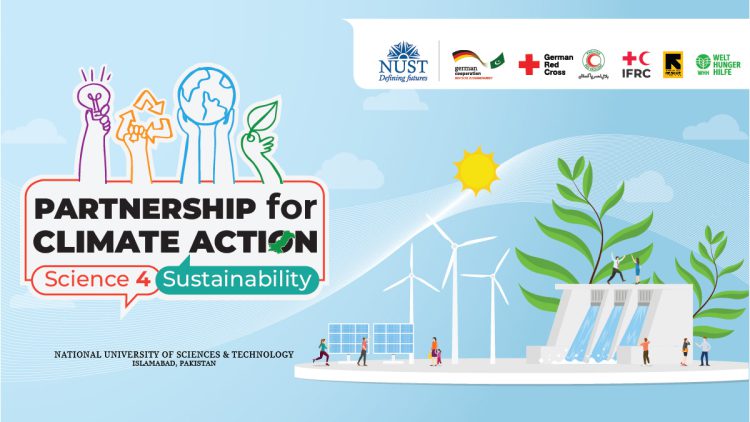It is well-established that Pakistan is among the countries that are most vulnerable to climate change impacts. For over a decade, it has been consistently ranked in the top ten countries in Germanwatch’s Climate Risk Index, and these impacts are very palpable today. Over the past year, it has become increasingly apparent that climate change will continue to have disproportionate impacts on Pakistan.
Within the first three quarters of 2022, Pakistan faced raging wildfires, heatwaves, glacial lake outburst floods (GLOFs) and floods. This has become Pakistan’s new normal as the country struggles to cope with the rapid changes brought on by the changing climate and its associated impacts. As a United Nations Implementing Partner for the Sustainable Development Goals (SDGs), NUST has geared itself to accelerate climate action in Pakistan. To set this in motion, the Office of Sustainability at NUST developed a Panel of Experts for SDG 13: Climate Action, a collection of the brightest minds in research and development in terms of climate change. The Expert Panel developed and refined the NUST Integrated Climate Resilience Policy and Action Plan. This Plan provides a roadmap towards minimizing and offsetting greenhouse gas emissions produced by the university. With this Plan, NUST aims to create scalable case studies for Pakistan to build national resilience against climate change.
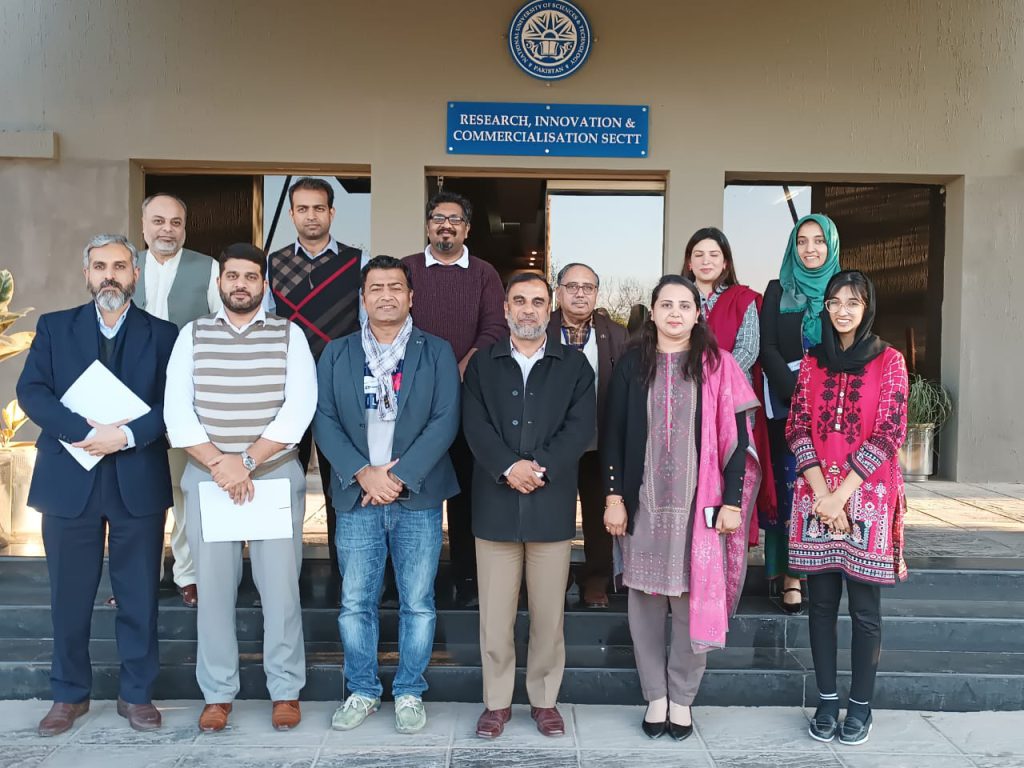
This Plan was launched at the end of an action-packed week titled Partnership for Climate Action. NUST teamed up with some of the leading national and international organizations to join hands in the areas of research and development, youth engagement, and collaborative solutions building, all under the theme of accelerated climate action. The event served as a space for stakeholders to come together and discuss localized solutions to climate mitigation and adaptation.
The event also featured a running exhibition which showcased some of the hands-on climate solutions that exist on campus today, the highlights of which were the carbon offset solutions presented by Dr. Muhammad Fahim Khokhar from the Institute of Environmental Sciences and Engineering (IESE), NUST. Both solutions presented ways to capture CO2 from the atmosphere and included retrofitting options for vehicular emissions.
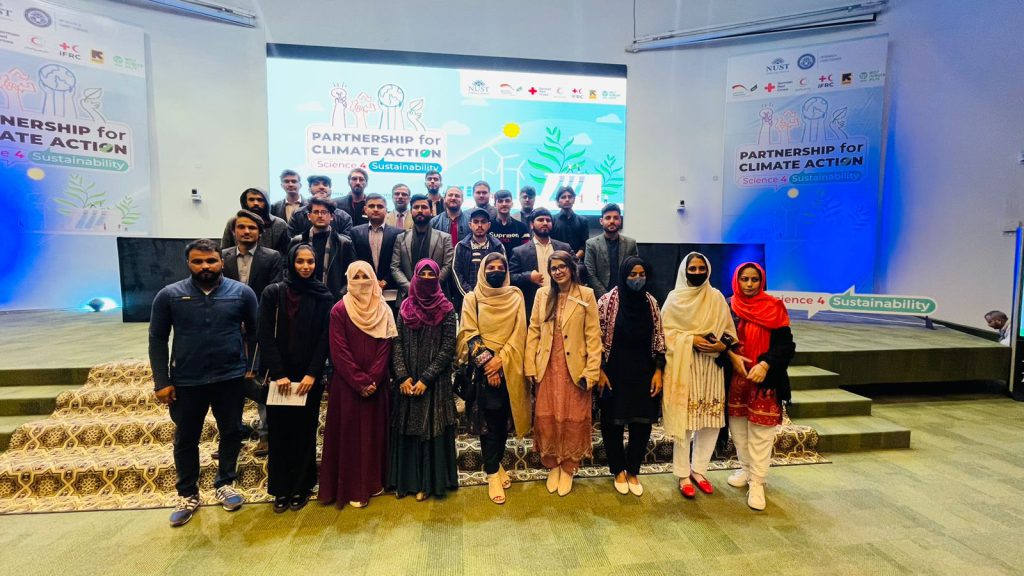
Moving forward, NUST aims to have net zero emissions by 2030 while also venturing into green tech entrepreneurship, sustainable innovation, climate research, and education for sustainable development. The outcomes of the 27th Conference of Parties (COP27) favored Pakistan in that they supported a loss and damage fund to help countries like Pakistan cope with the devastation wreaked by erratic climatic events.
As a low-emitting country, Pakistan needs a well-rounded approach to climate action. Mitigation, i.e., lowering greenhouse gas emissions directly, is a global necessity. However, even if emissions were to cease today, the world would still be experiencing climate change because of the heat already absorbed by the atmosphere and the oceans. This means that Pakistan would continue to experience devastating impacts as the resident third pole’s ice caps continue to melt.
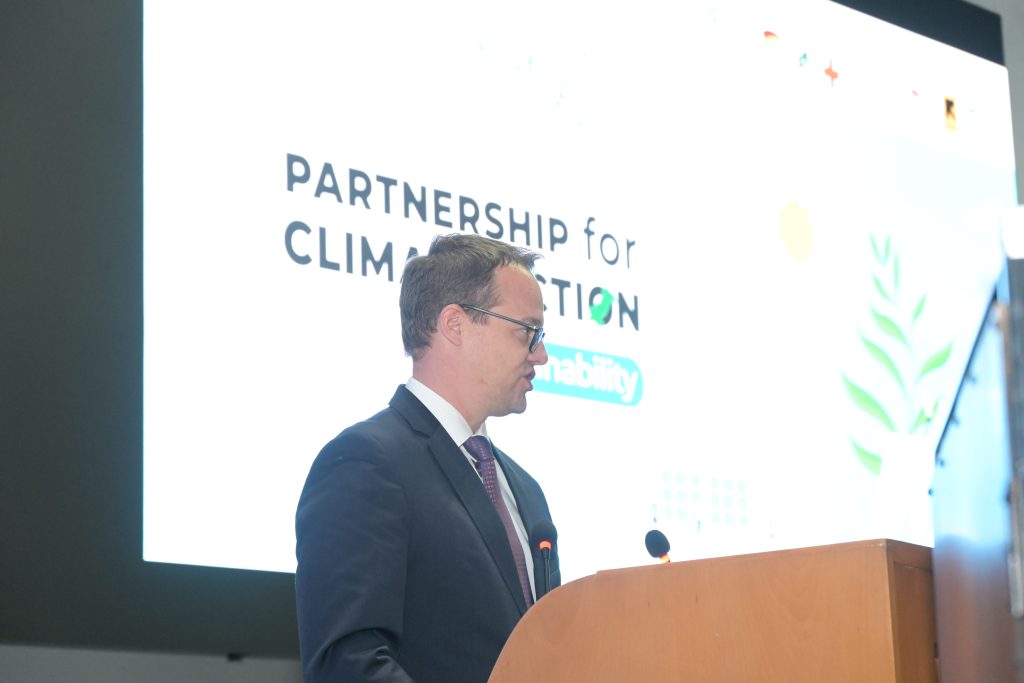
Essentially, this points to the need to build internal resilience and adapt to the unavoidable impacts of the climate crisis. Universities like NUST play a vital role in paving the way and developing localized, scalable solutions that are applicable to the various landscapes and climates of Pakistan. It is essential that we see this problem as an indigenous one, as well as a global one, because the climate crisis needs all hands-on deck.
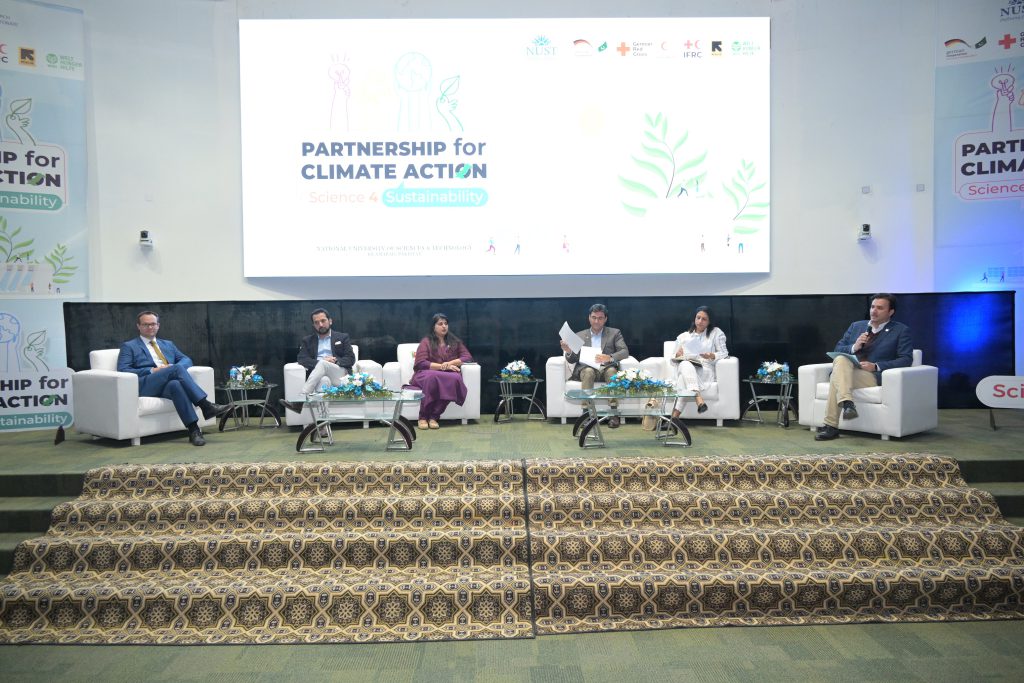
Watch the highlights of the three days event organized by NUST in recognition of Climate Change as a global issue and to launch Pakistan’s first Climate Resilient Policy.
The author is working as AD Sustainability at Office of Sustainability, National University of Sciences and Technology (NUST). She can be reached at ad.sustainability@nust.edu.pk.

![]()

